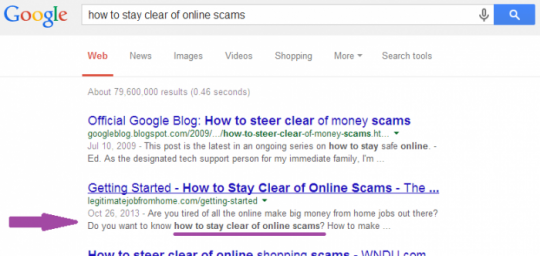If Content is King, Then Keywords are Queen
Published on April 13, 2014
Published on Wealthy Affiliate — a platform for building real online businesses with modern training and AI.
I’m sure you may have heard the term, “Content is King” when it comes to website creation? What does that really mean? It means that if you want your website to do well in the search engines by getting ranked higher and thus receiving more traffic, your content is what will determine how well that will turn out for you. How can your content be so powerful?
THE KING

If the content you provide for your website is interesting, unique, engaging, and makes people want to continue reading it, guess what will happen? People will want to read it and they might just share it with other people too. But if your content is stale, flat and has no pizazz, why would anyone be interested in reading it? That’s like asking yourself, should I drink this freshly opened bottle of cola or the one that has been opened for the past 24 hours? Fresh bubbly cola or flat cola?
The same is true for your content. If you give some personality to your content, some sensational feedback that your readers can identify with, you will write content that people will want to read. No one wants to read something that will put them to sleep. They want to read something that will keep them engaged by making them think, answer questions, laugh or all of the above. So writing good content is essential for more website traffic.
ANALOGY & VISUALIZATION
Did you like those analogies I used to describe the difference between fresh and stale content? Did you see or should I say read, how I engaged your thought process by first giving you an analogy and then asking you a question? That is one great way to grab your reader’s attention and to hold it. Another great way is to make your reader visualize something that is either relevant to your content or similar.
I used the analogy of bubbly cola and flat cola in relation to exciting content and boring content because most people have tasted both types of cola and know the difference. When you write your content you want to try and relate to the many experiences that people may have had at one time or another. However the analogy and visualization aspect is just one of the ways to write good content. Do you know what another way is? It’s a really simple way and I have already told you what it is. Were you paying attention?
QUESTIONS
If you haven’t figured it out already, the other way is to ask your reader questions. Up to this point in my content I have asked you 11 questions. You are probably thinking, no way Robert have you asked me that many questions. Well yes I did and you can go back and count the ‘?’ if you would like. Go ahead, I’ll wait........................................
When you place people in the position to answer a question then they become engaged in the conversation. No longer are they just passively reading but they become part of the discussion because they are required to answer the questions that your content is asking of them. Your reader now has to engage their thought processes in order to absorb what it is that they are reading.
THE QUEEN
Ready to put this into action?
Start your free journey today — no credit card required.

First off, what are keywords? Simple answer. Keywords are the queries that people type into the search engines when looking for information. What is the best way to use keywords? That question is an example of a keyword because it is a query that someone would type into a search engine to find an answer to. As you probably have figured out by now, a “keyword” is not always a single word. In fact, most times it is multiple words, also known as long tailed keywords.
KEYWORDS & MARKETING
Keywords are not only queries that are typed into search engines, they can also be the name of the products that you are selling. Let’s say you are selling iPhone cases, video games, vitamin supplements, Uggs boots, Movado watches, Sony Vaio computers, Wilson baseball gloves, or Canon cameras. All of these can be keywords too. But how would you use these keywords so that they will be effective and why do you need to?
You want to use your keywords in strategic locations of your content. Not only to tell your readers what your webpage is about but also to help the search engines find your content when people type those keywords in search of answers. To effectively market what you are selling, your keywords need to get exposure. To get exposure they need to be seen but ONLY in a natural way. You do NOT want to keyword stuff your content, doing so will hurt your chances of being found within the search results.
AVOID KEYWORD STUFFING
What is Keyword Stuffing? It is when you load up your content with keywords in an attempt to get the search engines to notice your webpage. This course of action needs to be avoided at all cost. There are ways to get your keywords noticed but you really do not need to use them in an overkill fashion to get your point across.
Matt Cutts, the head of Google’s Web Spam Team, has given a simple explanation into what Keyword Stuffing is and how to avoid it. I will use his example that I heard him give at a conference a few years ago. The keyword was for a USB Flash Drive, also known as a Thumb Drive and other names. He held one in his hand and he asked the audience, what would you type into Google to search for this? Many people said the different names that this device is known as. Then Matt gave the Keyword Stuffing and the Natural Non Stuffing examples. Here are my renditions of what he said.
KEYWORD STUFFING EXAMPLE: Buy this red thumb drive because it is the best thumb drive at storing your computer content. This is a very easy thumb drive to use because it’s small and can fit into your pocket. Having your thumb drive with you at all times makes it convenient to use and you can plug your thumb drive into any USB port of a computer.
Why was this a bad way to use the keyword? Because I stuffed the content with the keyword “Thumb Drive” 5 times. Using the keyword once, even twice would have been more than enough to get the point across that I was trying to market thumb drives.
NATURAL NON STUFFING EXAMPLE: Buy this red thumb drive because it is the best at storing your computer content. This is a very easy USB flash drive to use because it’s small and can fit into your pocket. Having this portable media storage device with you at all times makes it convenient to use and you can plug it into any USB port of a computer.
Do you see how I was able to relay the marketing message? I used the keyword “Thumb Drive” only once but I used other known names as well. NOTE: These examples are brief in size. Obviously the content that would be used for the marketing aspect of Thumb Drives would be much longer than 3 sentences but even within 3 sentences you can read which one is keyword stuffed and which one reads more natural.
THE QUEEN COMPLIMENTS THE KING

So just like the King is the leader of the monarchy, content is the leader of your web pages and posts. Just like the Queen is an important addition to the monarchy and supports it from within, keywords do the same thing to your content by complimenting it.
DO YOU WANT A KEYWORD PLACEMENT TIP?
If you want to get the best search results don’t just place your keywords in the “Title” of your pages and posts but also place them within the first 160 character spaces of your first paragraph. Why within the first 160 characters? Because this is the amount of text that will show up in the “Description” portion of search engine results (see below image). If you can place the keywords within the first 160 characters and have it sound natural then do it. If you cannot place it and have it sound natural then do not. You never want your content to sound un-natural or keyword stuffed.

Share this insight
This conversation is happening inside the community.
Join free to continue it.The Internet Changed. Now It Is Time to Build Differently.
If this article resonated, the next step is learning how to apply it. Inside Wealthy Affiliate, we break this down into practical steps you can use to build a real online business.
No credit card. Instant access.